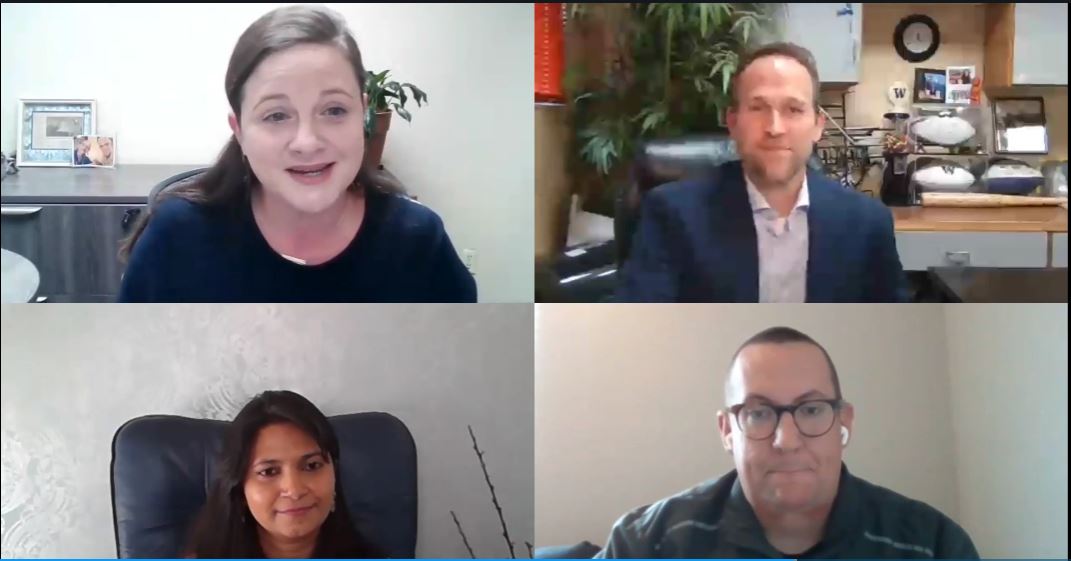This article is from the Laying the Foundation for Long-Term Success through Cultivation, Mentorship, and Opportunity session during ISRI2021. If you would like to watch this session in its entirety, you can still register for ISRI2021 here. This session, along with others, are available to attendees on-demand.
What do an electronics and instrumentation engineer by education, a former chef, and someone who used to work in radio, all have in common? They all currently work in the recycling industry and took unique routes to get where they are today.
During the session Laying the Foundation for Long-Term Success through Cultivation, Mentorship, and Opportunity at ISRI2021, panelists shared their respective journeys to the recycling industry, particularly how mentorship helped them navigate their new careers. The discussion was led by Ryan Glant, CEO/president of Pacific Iron & Metal Co. He himself wrote music for two CBS soap operas before joining his family business.
‘Now You’re Ready to Fly’
Mentorship was key for Josephita Harry, who entered the industry with little knowledge of its ins and outs. Now Pan American Zinc’s vice president of trading in the nonferrous & electronics scrap division, Harry says her mentor—who is also her godfather—taught her everything she knows, and still teaches her new things.
After a few years of mentorship, her mentor told her, “Now you’re ready to fly, you’ve got your own wings.” Taking that advice to heart, she flew from Dubai to the U.S. to start her current job with Pan American Zinc. While Harry had an “official” mentor, she seeks mentorship and information from many people, and encourages others to do the same. “The young executives should reach out. Take help. It’s always available,” she says.
The mentor/mentee experience doesn’t have to be formal, says Jordan Vexler, ferrous sales/chief operating officer, Monterrey Iron & Metal. She’s received advice from many people throughout her career. Like Harry, Vexler didn’t know much about the industry. A fourth-generation metal recycler, Vexler sought out people who were also involved in their family’s business, as well as vendors and original equipment manufacturers (OEMs).
Vexler found formal mentorships through peer groups and serving on boards. Being part of a peer group “has been the most beneficial thing” she’s done. While the group isn’t related to recycling, Vexler’s found it helpful to discuss various topics with others, and share techniques and insights into executive life and building teams.
ISRI Provides Guidance
ISRI provided a main source of mentorship and career development for the panelists. When looking at local trade associations to understand executive growth, one of Vexler’s favorite experiences was Scrap.edu, a program through ISRI’s Gulf Coast chapter.
Rob Wise, account executive for Ferrous Processing and Trading Company, has been involved with ISRI since his first buying job. He’s learned much during his time with ISRI, including ways to deal with difficult situations. Wise applies that knowledge to his current position as the events chair for ISRI’s Young Executive Council (YEC).
Harry recalled meeting ISRI president Robin Wiener, and how Wiener helped her get involved in the association. After meeting her at an airport, Wiener spoke with Harry about ways to get involved with ISRI. Harry took the information and ran with it. Today, she leads the communications subcommittee for the Women in Recycling (WIR) Council and advocates for its southeast chapter. Organizations are always searching for talent and volunteers, so people should pursue these opportunities if they’re interested, Harry says.
Though serving on an organization’s board may seem like something you need to “build to,” many associations want more youth representation. Vexler recommends getting involved even if it feels daunting. “There are a lot of opportunities,” she says. “Give it a try and go for it.”
‘Best Kept Secret in the World’
As established executives in the industry, the panelists agreed on the importance of keeping the next generation in mind. When recruiting the next generation of leadership, Vexler recommends making sure the industry is accessible and seeking candidates who may not have direct experience, but have important skillsets. The industry should continue evolving and trying new things, especially from a technological standpoint, she says.
For Wise, the recycling industry is “the best kept secret in the whole world.” Though part of him loves that, it’s important to grow the workforce and give people the opportunity to join and flourish. “The sky is literally the limit here,” he says. “I’m proof of that.”
Photo Caption: From top left going clockwise: Jordan Vexler, Ryan Glant, Rob Wise and Josephita Harry discuss the role that mentorship played in their respective careers.
Additional Resources













